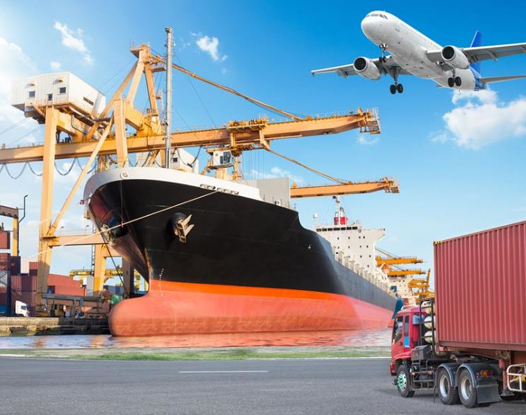Indonesia an archipelago that spans over 17,000 islands, depends on cargo trips that work efficiently to support its economy and link its various regions. Because of its huge area of islands and seas, transportation logistics are crucial for ensuring goods reach their destination on time. The country’s unique geography, coupled with its position in the middle of major global trade routes making cargo trips an indispensable part of daily life and economic progress. From connecting rural villages to vibrant urban areas to aiding international exports, cargo services constitute the foundation of the Indonesian economy and trade. Rapid growth in sectors such as manufacturing and e-commerce has added to the significance of these services to propel the nation’s economy forward.
The geography of Indonesia presents both challenges and opportunities for cargo expeditions. The islands are separated by rivers, seas as well as a range of terrains making it necessary to employ a multi-modal system of transport. Aircrafts, ships, trucks as well as trains are able to work in tandem to create a seamless logistics network capable of overcoming these challenges. The major ports, such as Tanjung Priok in Jakarta, Tanjung Perak in Surabaya, and Belawan in Medan serve as vital ports, which ensure seamless transportation of merchandise between islands and international markets. But, unpredictability in weather as well as infrastructure deficiencies in rural areas sometimes create congestion. To tackle these issues both the private and government sector are investing in technology-driven solutions such as real-time tracking, routing optimization and infrastructure upgrades to facilitate smoother operations.
The booming e-commerce market across Indonesia has led to significant growth in the cargo-expedition sector. Online marketplaces such as Tokopedia, Shopee, and Lazada have resulted in an enormous increase in need for logistical services specifically for last mile deliveries. With more people shopping on the internet, businesses have been compelled to enhance their networks and improve delivery efficiency to cater to consumer expectations. Many logistics providers now offer tailored solutions for e-commerce businesses that include warehousing, order fulfillment and speedy delivery services. The explosion of digital retailing has not just modernized the logistics industry but also connected remote areas with the global and urban market. This has led to cargo trips have now been a vital part of Indonesia’s digital economy.

International trade is another area where Indonesia’s cargo expeditions are crucial. Indonesia’s location in key shipping routes make an important center for international commerce. Exports like coal, palm oil, textiles, rubber and fish are transported to international markets, thanks to the efficiency of cargo companies. Additionally, the Indonesian government has prioritized enhancing the country’s ports and logistics infrastructure with initiatives such as the “Sea Toll” program, designed to ensure that the distribution of goods across the archipelago at reduced costs. Plans like the expansion of the Patimban Port and improvements to New Priok Terminal further underscore the country’s commitment to becoming the leading hub for logistics throughout Southeast Asia. These initiatives not only help the domestic economy but also draw international investment and collaborations in the logistics sector. For more information please visit here https://muat.com/
Sustainability is now increasingly crucial to the cargo journeys that take place in Indonesia. Due to the growing concern of global citizens about climate change and environmental impact, logistics companies are now seeking ways to minimize their carbon footprints. Eco-friendly practices, for example employing energy efficient vehicles, using cleaner fuel alternatives, and optimising delivery routes are becoming more prevalent in the industry. Government has also enacted guidelines to promote sustainable shipping and push businesses to develop new ideas and comply to international environmental standards. As sustainability becomes a core issue, the freight expedition sector is expected to develop further, striking the right balance between growing economics as well as environmental sustainability.
In conclusion, cargo expeditions in Indonesia are a vital transportation link that connects the nation’s islands, facilitates economic activity as well as integrating local trade with international markets. Despite the logistical challenges posed by its geography The sector has demonstrated flexibility and resilience through technological advances, strategic investments and an increasing focus on sustainability. Whether supporting the booming e-commerce sector or ensuring the efficient flow of international trade, cargo expeditions are a vital part of Indonesia’s economic and social fabric. With continuous efforts to modernize infrastructure and adopt innovative solutions and solutions, the future for cargo-related expeditions in Indonesia appears promising. As the country continues to thrive as a maritime country the cargo industry will remain a driving force behind its progress and development.
